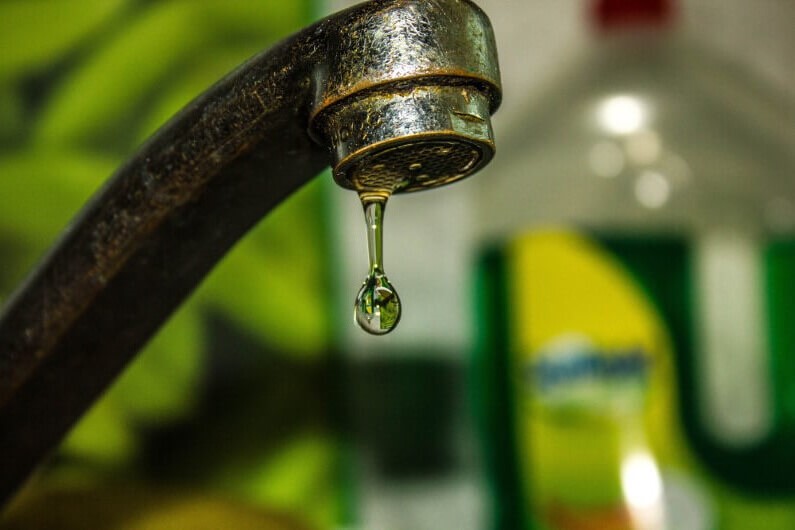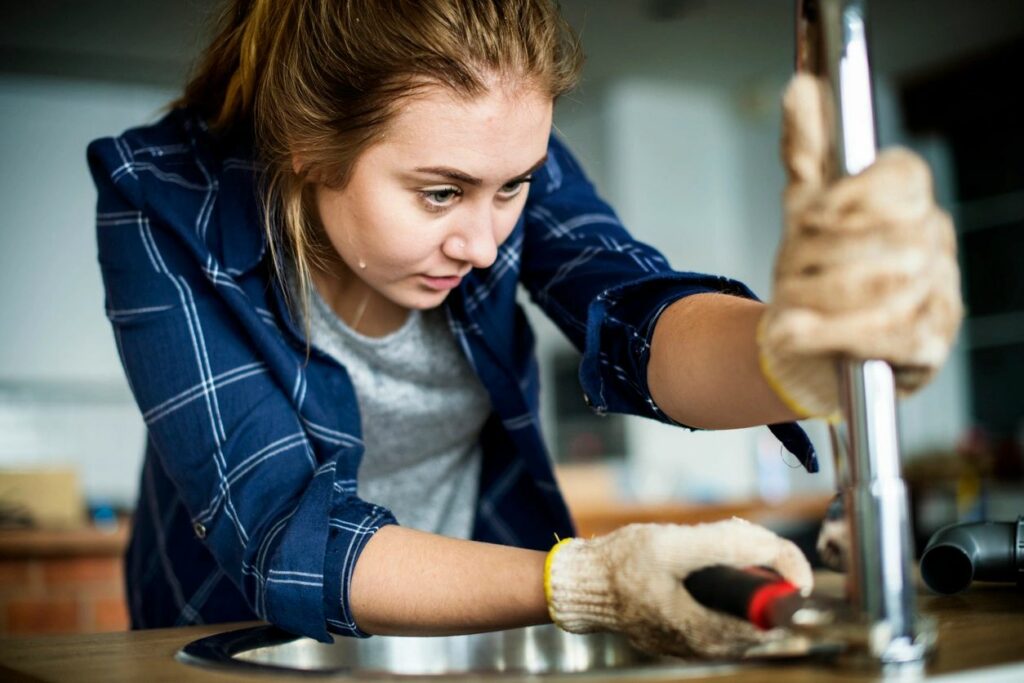Factors Why It's Important to Resolve a Dripping Faucet
Factors Why It's Important to Resolve a Dripping Faucet
Blog Article
Listed here underneath you might get lots of sensible points relating to Should I Repair or Replace a Leaky Faucet?.

Trickling taps could appear like a minor aggravation, yet their effect exceeds simply the nuisance of the noise. From drainage to sustaining unnecessary financial prices and wellness dangers, disregarding a dripping tap can result in numerous repercussions. In this article, we'll look into why it's essential to resolve this common family issue immediately and effectively.
Waste of Water
Ecological Impact
Leaking taps contribute substantially to water wastage. According to the Environmental Protection Agency (EPA), a solitary faucet dripping at one drip per secondly can lose more than 3,000 gallons of water per year. This not just stress water resources however also influences ecological communities and wild animals dependent on them.
Step-by-Step Overview to Repairing a Dripping Faucet
Devices Required
Prior to attempting to take care of a dripping tap, collect the required devices, including an adjustable wrench, screwdrivers, replacement components (such as washers or cartridges), and plumber's tape.
Common Faucet Issues and Their Solutions
Identify the sort of tap and the specific problem triggering the drip. Usual troubles include worn-out washers, corroded shutoff seats, or defective O-rings. Refer to producer directions or on the internet tutorials for detailed advice on repairs.
Financial Costs
Increased Water Bills
Beyond the environmental influence, trickling taps can pump up water bills substantially. The accumulated wastage with time equates into higher utility expenses, which can have been prevented with timely repairs.
Possible Property Damages
Furthermore, prolonged leaking can result in harm to fixtures and surface areas surrounding the tap. Water accumulation can create discoloration, corrosion, and also architectural issues if left unattended, leading to extra repair service prices.
Health Problems
Mold And Mildew and Mold Growth
The constant visibility of moisture from a dripping tap develops an ideal setting for mold and mildew and mildew development. These fungi not just compromise interior air quality yet also posture health and wellness threats, especially for people with breathing problems or allergies.
Waterborne Diseases
Stationary water in trickling faucets can end up being a breeding place for bacteria and other microorganisms, boosting the threat of waterborne conditions. Impurities such as Legionella microorganisms grow in stagnant water, potentially resulting in major health problems when consumed or inhaled.
DIY vs. Expert Repair work
Pros and Cons of Do It Yourself Fixing
While some might try to deal with a trickling tap themselves, do it yourself fixings feature their own set of obstacles. Without appropriate knowledge and devices, do it yourself attempts can aggravate the problem or lead to incomplete repairs, lengthening the problem.
Advantages of Hiring a Professional Plumber
Employing a professional plumber makes sure that the underlying reason for the leaking tap is addressed effectively. Plumbings possess the know-how and equipment to diagnose and repair faucet issues efficiently, conserving time and decreasing the threat of additional damage.
Environmental Responsibility
Individual Payment to Preservation
Taking obligation for repairing dripping faucets straightens with more comprehensive efforts toward water preservation and ecological sustainability. Every individual's activities jointly make a significant impact on maintaining priceless sources.
Lasting Living Practices
By focusing on timely repair work and taking on water-saving habits, individuals contribute to lasting living techniques that profit both present and future generations.
Preventive Measures
Routine Maintenance Tips
To stop dripping taps, perform routine upkeep such as cleaning aerators, inspecting for leakages, and replacing worn-out components immediately. Furthermore, take into consideration mounting water-saving gadgets or upgrading to extra effective fixtures.
Significance of Prompt Repair Works
Addressing trickling taps as quickly as they're seen protects against additional water wastage and potential damages, inevitably saving both water and money in the future.
Influence On Property Worth
Assumption of Well-Maintained Residential Or Commercial Property
Keeping a building in good condition, consisting of resolving maintenance problems like dripping faucets, boosts its perceived value and worth among possible customers or tenants.
Impact on Resale Value
Properties with properly maintained plumbing fixtures, consisting of taps, command greater resale worths in the property market. Addressing dripping taps can add to a positive impact throughout home assessments and arrangements.
Conclusion
Dealing with a trickling tap surpasses simple convenience; it's an important action towards saving water, reducing economic costs, and safeguarding wellness and building. Whether through do it yourself repair work or expert aid, doing something about it to repair trickling taps is a small yet impactful method to advertise liable stewardship of sources and contribute to a healthier, a lot more lasting future.
How to Fix a Leaky Faucet: Step-by-Step Repair Guide
A leaky faucet may seem like a simple annoyance, but if it's not fixed promptly, that leak could cost hundreds to potentially thousands. From water damage to mold, mildew, and high water bills, even a tiny leak can be catastrophic if left unattended. Damage like this can even affect the overall value of your home, so it's important to take the right approach for leaky faucet repair. You may need the help of a plumber in some cases, but we've got a few tips you can try on how to fix a leaky faucet before calling the pros.
Four Faucet Types
When you're learning how to fix a leaky faucet, the first step is knowing what kind of faucet you're working with! There are four common types.
Cartridge Faucets
Cartridge faucets come in one- or two-handled varieties. In one-handled cartridge faucets, hot and cold water combines in a single cartridge. In the two-handled versions, hot and cold water are controlled separately and mixed in the faucet.
Ball Faucets
Ball faucets have a single lever you push up and down to adjust the pressure and rotate to change the temperature. A slotted metal ball controls the amount of water allowed into the spout.
Compression Washer Faucets
They're the oldest type of faucet, but they're still used in many homes — especially older ones. Compression faucets have two separate handles that, when turned, raise or lower the washer that seals a water valve. This valve stops water from flowing through the faucet when it is turned off.
Disc Faucets
Disc faucets rarely need to be repaired due to their maintenance-free design. The water flow is controlled by two discs — the upper one raises and lowers against a fixed lower disc, creating a watertight seal. If your disc faucet starts leaking, you may need to replace the seals or clean residue buildup from the inlets.
Fixing a Leaky Faucet
Step 1: Turn Off the Water
Whether you're learning how to fix a leaky bathtub faucet or how to fix a leaky kitchen faucet, always turn off the water supply to your working area when you're fixing a leak. The last thing you want is a flood added to your list of things to fix.
Look for the shutoff valves below your sink or around the tub and turn them clockwise to stop the water flow. If your faucet doesn't have shutoff valves, you may need to turn off the water for the whole house. Check to make sure it's off by turning the faucet on. If nothing comes out, you're ready to start the repair.
Step 2: Take Apart the Faucet
How you disassemble your faucet depends on the type of fixture you have. You can use a flathead screwdriver to remove the caps on top of the handle or handles for cartridge and compression faucets. Inside, you should see handle screws. Unscrew these with a screwdriver to remove the handle.
Disc- and ball-style faucets will typically have an inlet screw near the handle, and removing that will reveal the interior of the faucet.
Detach the Valve Stem
For cartridge- and compression-style faucets, you'll see the inner valve stem or cartridge once you remove the faucet handles. If you have a compression faucet, unscrew the brass valve stem. If you have a cartridge faucet, pull out the cartridge. If your cartridge has been in place for a while, it may require some tools or extra force to remove it due to mineral deposits.
Examine and Replace Parts
Once you've removed the parts, check them out to confirm what needs to be replaced. You may see corroded rubber washers, O-rings, stems, or cartridges. On a ball-style faucet, check the seats and springs for damage.
If you need to repair a leaky disc faucet, check the inlet and seals on the lower disc.
Once you determine what parts must be replaced, visit your local hardware store. Bring the damaged parts with you to ensure you can purchase the correct components to replace them.
Clean Valves and Faucet Cavity
If you've removed a stem or cartridge, you may notice mineral buildup in the faucet's threads. Use white vinegar to clean the valve seat by soaking it for a few minutes, then scrub it away with a soft toothbrush and rinse with warm water. You can also clean the interior of the faucet in the same way.
Reassemble the Faucet
Once your faucet is cleaned and the required parts have been replaced, it's time to reassemble it. Put the pieces back together and slowly turn the water supply back on. Doing this slowly is crucial because too much initial water pressure can damage the new hardware you've just installed.
https://homewarranty.firstam.com/blog/how-to-fix-leaky-faucet

As a fervent reader on 4 Common Reasons for a Leaky Faucet, I thought sharing that editorial was really helpful. Liked our blog posting? Please quickly share it. Help somebody else find it. Thanks so much for your time spent reading it.
Report this page